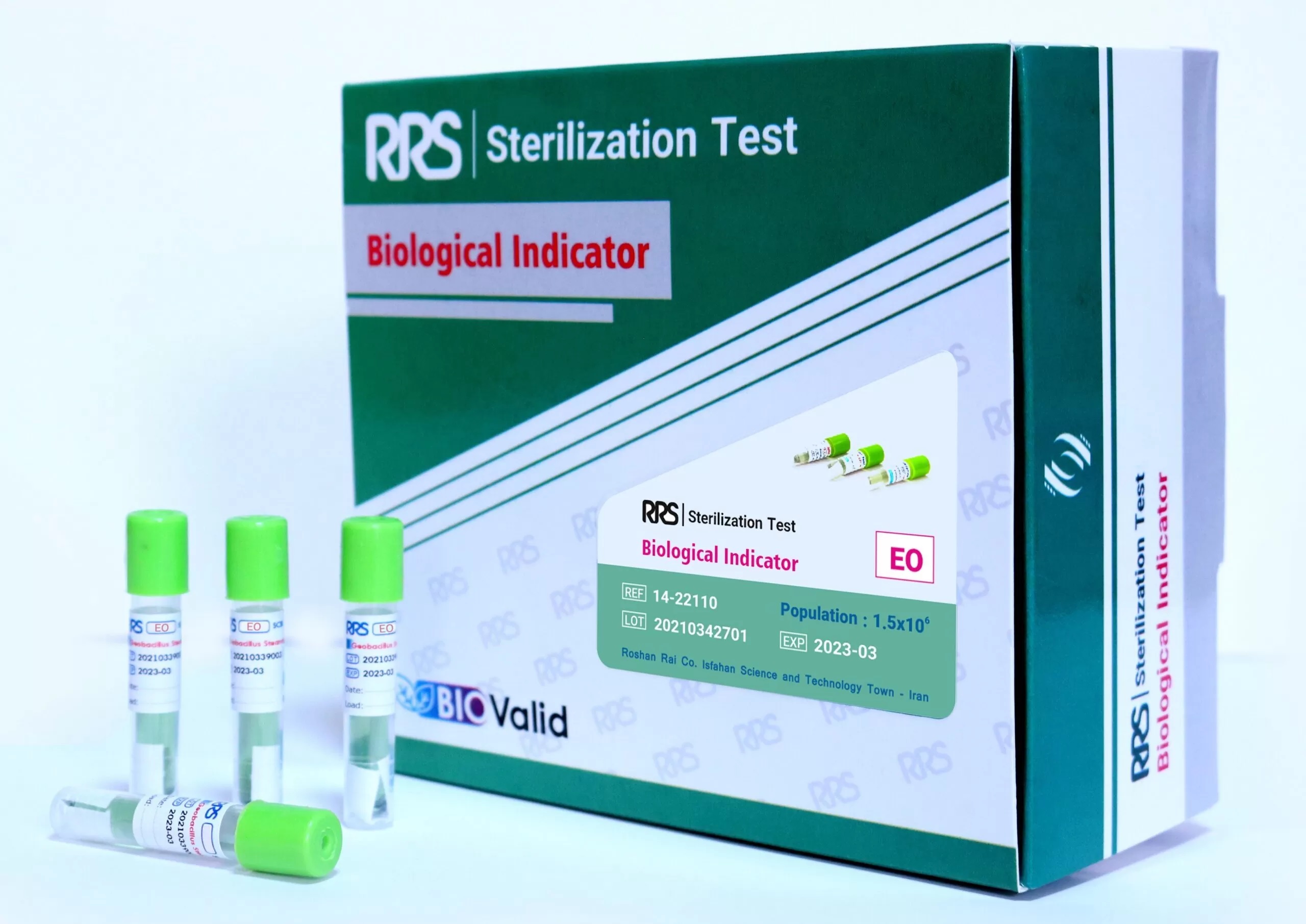Most experts know the biological indicator (BI) as monitoring the sterilization process. This is because BI directly evaluates the sterilization process using resistant microorganisms. The RRS biological indicator consists of a plastic tube containing a glass ampoule containing a culture medium suitable for growth and a paper strip impregnated with 106 spores of Bacillus atrophaeus (ATCC 9372) and a cap that allows ethylene oxide gas to enter the tube. The ethylene oxide biological indicator (RRS 14-22110) is compliant with ISO 11138.
Instructions for general use of the RRS ethylene oxide biological indicator
- Record the number of the sterilizer and the date of the process on the BI.
- According to the validation standard, biological indicators must always be placed at the worst-case location, which may be inside of a package with solid goods or inside of instruments.
- Select the number of BIs according to the autoclave volume and instructions (at least two and 5 in higher capacities). But less than two is never recommended. The number of BI should be selected according to the national accreditation standards of Iranian hospitals (4th edition / 1398).
- Check the chemical indicator on the biological indicator. The color change in the chemical indicator indicates the placement of a BI in the sterilization process.
- After the sterilization process, break the glass capsule containing the culture medium inside the vial. Then place the BI in the incubator at 37 ± 2 ° C for 48 hours.
Result
The color change of the biological indicator to yellow indicates a defect in the sterilization process after the mentioned period. The vial’s content can become turbid, or the appearance of a precipitate can be observed due to bacterial growth. If there is no color change in the indicator after the specified time, the test result will be negative, indicating that the sterilization process is adequate.
Important! * Check the biological indicator being incubated at appropriate intervals of 10 hours.
Use a non-sterile vial as a positive control. In this case, make sure that the appropriate conditions are provided in the incubator. For results to be valid, the positive control indicator should turn yellow and the negative control should not change its original color (green color).

Record the positive results in the RRS CSSD Documentation NoteBook and discard them immediately.
Storage
- The BI should be stored away from light, at temperatures between 10-30 ºC and 30-80% Relative Humidity.
- Do not freeze and store close to other sterilization agents or chemical products.
- The RRS biological indicator has a certain shelf-life that marked on it.
WARNING
- Each indicator is intended for a single-use and must be discarded after use.
- Do not break the RRS biological indicator vial capsule immediately after removal from the autoclave. The ampoule is fragile, protect it from shocks, falls, and sudden temperature changes.
Disposal
Discard ethylene oxide biological indicator (RRS 14-22110) after use according to your country’s healthcare and safety regulations. The positive biological indicator can be sterilized in gravity air displacement steam sterilizers at 121 °C for at least 20 minutes or at 134 °C for at least 10 minutes in vacuum-assisted steam sterilizers.
Download Catalog
Please Check out file at the following link
Ethylene Oxide Category Control indicator (PCD) (RRS 14-12520)
Double self-adhesive Ethylene Oxide label (RRS 14-12110)
Formaldehyde Biological Indicator 10^6 (RRS 14-24110)
Bacillus atrophaeus Spore Strip (Ethylene Oxide) (RRS 14-22110)


